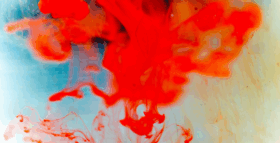
Mom died in May, 2014. Nine years later, so did my dad –my anchor and confidante. Both deaths were unexpected so perhaps much less expected was the anger that accompanied them. It’s not a comfortable feeling. But it is a natural part of the grieving process; your mind and body’s way of saying I deserved better. Which you did.
If you’re angry, too in the wake of a deep loss, here are four thing I learned from my own experience:
1. Why Anger Shows Up in Grief
We have been told anger is a negative sentiment. But when we’re mourning someone, our emotions aren’t neat and polite. Anger in grief represents emotional responses to a deep rupture in our sense of attachment, safety, and fairness. It’s a powerful signal that something essential has been lost or violated.
2. Anger and Love Coexist
My mom felt slightly unwell on her way to vacation to Kashmir with ad, ended up in the hospital for a checkup, and died while I was mid-air heading to New Delhi. I went straight from my 16-hour flight to the hospital morgue, where I stared at her body wrapped up in a lavender sheet.
Anger. How could you not wait for me? Anger. How could you leave Papa? You were barely 65! Anger. But there are so many things we left unsaid. It was confusing to see the tenderness of love sit right next to the sharpness of anger. I was angry at the loss of control, the change in our family dynamic, and the injustice of This shouldn’t have happened.
3. Anger Extends to the People Around You
Extended family members making certain comments about my mom’s last rites enraged me. The greed in people’s eyes as they imagined scooping out the silver and Swarovski and haggle over who would receive her French chiffon sarees, now that the lady of the house was gone, made me furious.
I raged at medical systems—how could they let Mom slip away so unexpectedly. I was distrustful of the caregivers and flat-out angry at God. The juxtaposition here was between outward fury and internal fragility.
In losing my father, I lost a part of identity, my connection to the land of my ancestors, and my safe space in this world. My husband and I had seen him in April 2023. He was doing fine in the way that many people in their 70s are. When the doctor called us one month later and gave us three days to say goodbye to him, I found myself torn between anger and prayers. It made me so angry – not to mention wondering why he had to die when so many terrible human beings seem to survive for so long.
I noticed a difference in my anger after his death. It felt different while I performed my father’s last rites with my brother, when I commuted to another city where now my father-in-law was in the ICU, then eventually attended my father-in-law’s cremation. Most of this new anger has come from unresolved relationships and betrayal of trust by a few whom I held closest. When people close to you ghost or withdraw while you’re grieving, it can stir up a very specific kind of anger—one rooted in abandonment, confusion, and emotional betrayal. I saw how quickly so many extended family members forgot about my parents, my brother, and me. It made me feel like I was grieving multiple disappearances at once.
As painful as this was, eventually, it helped me to identify the ones who did have the capacity to stand beside me.
4. Anger Can Help You Draw Boundaries
I have harnessed my anger to gain clarity and accept that not everyone you are related to deserves your time or love; not every friendship lasts forever; and your healing is your responsibility. I’ve also become more attuned to the language of avoidance—silence, platitudes, distraction.
Being an adult orphan has taught me the stark but powerful lesson that aside from your parents, no one will likely ever put their life on hold for you. Be okay with not always being available or accessible to everybody and learn to take care of yourself.
Sweta Vikram is an Ayurvedic Doctor, grief-informed wellness expert, and author of 14 books.








